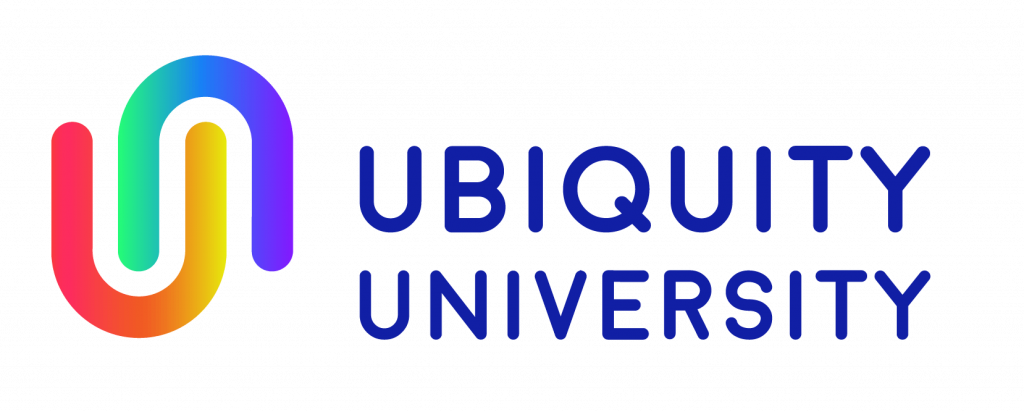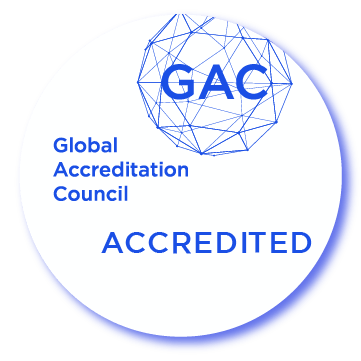
Why would a university include self-mastery?
At Ubiquity University students get one third of their credit for Self-Mastery (the other two thirds are divided between knowledge and Impact projects). Why do we do this and how do we do this?
Why would a university include self-mastery?
Ubiquity is designed to equip you with the qualities and competencies you need to make a positive difference in the world. We believe that the quality of impact that you make has something to do with what you know, but a lot more to do with who you are and how you show up in the world each day. This is why self-mastery is so critical for anyone wanting to create positive change. If we do not work on ourselves and our inner qualities (such as emotional intelligence), we risk creating more of a mess around us as our inner turmoil spills out into our relationships and projects.
Does this mean that you should wait to engage in the world until you are 100% enlightened? Definitely not! It is actually through engaging in the world that we bump up against ourselves. Our attempts to create positive change around us hold up a mirror to our inner world. That is why we insist that students work on knowledge, self-mastery and impact projects in parallel throughout their time at Ubiquity.
On one hand we often see activists deeply passionate about changing the world yet with little awareness of their own development and dynamics. On the other hand there are many people who see themselves as spiritual and spend all their time on a meditation cushion withdrawn from the world, making little actual positive impact. As conscious activists, we need to combine the two, as we try to learn and grow in interaction with our attempts to serve the world.
How do we do it?
At Ubiquity our students have access to a diversity of self-mastery content that can introduce them to different practices, such as mindfulness, meditation, embodiment exercises, nutrition, and shadow work.
Each student has a self-mastery mentor who stays with them during their whole tenure at Ubiquity and helps them find the personal development practices that best suit them. There are no prescribed practices, although there are a minimum number of self-mastery related courses that students have to take. Students are encouraged to explore a variety of practices and find the ones that fit them based on where they are at.
How do we assess self-mastery?
This is a very interesting domain. For knowledge-based learning it is relatively easy to assess the competencies that people develop. But how do you assess someone’s emotional competence, or relational ability? In the first phase, we assess whether someone is engaging in the self-mastery dimension of the program by requiring them to write a short journal-like entry at the end of each week. In this journal they describe what they did to develop their self-mastery that week.
The journal entries can be shared with their self-mastery mentor and other students if they wish. At the end of each trimester, students are also required to complete a more structured self-mastery report with a number of questions that explore how they are connecting their work on themselves with their knowledge-based study and their impact project. This is formally assessed by their self mastery mentor according to a number of criteria.
Currently we do not attempt to assess someone’s actual progress along multiple lines of their interior development. This is an extremely complex and subtle challenge. We are developing a prototype in this area that we hope to test soon, but will proceed with great caution to ensure that any output from such a measurement process contributes constructively to a student’s development.
Does it work?
Well, so far students certainly appreciate the space they are given to pay attention to their own personal development. We have a good selection of resources and great self-mastery mentors who nurture and challenge students in ways they say really support them. One of the challenges when you embark on your own personal development journey is the discipline it requires for you to keep it up. This is why we insist on the weekly reflections; they ensure that students at least reflect on what they have (or have not) done that week.
Self-mastery practices often reveal to us things about ourselves that are not always nice to look at. This can create irritation in us which we then project onto the self-mastery practice or program itself. It’s important to notice this, and any accompanying whispering from your ego that says you can skip your practice and reflections this week (as it’s getting a little too close for comfort). The self-mastery mentor is there to help students look at themselves with compassion and clarity, noticing these kind of tensions and enabling them to deepen their self-knowledge through that process.
We believe that self-mastery is critical to Ubiquity achieving its mission of equipping people to make a living making a positive difference. We know we are nowhere near having the complete solution yet we have made a start, and the path is unfolding before us.
As WH Murray says, “Whatever you can do, or dream you can do, begin it. Boldness has genius, power, and magic in it. Begin it now.”


